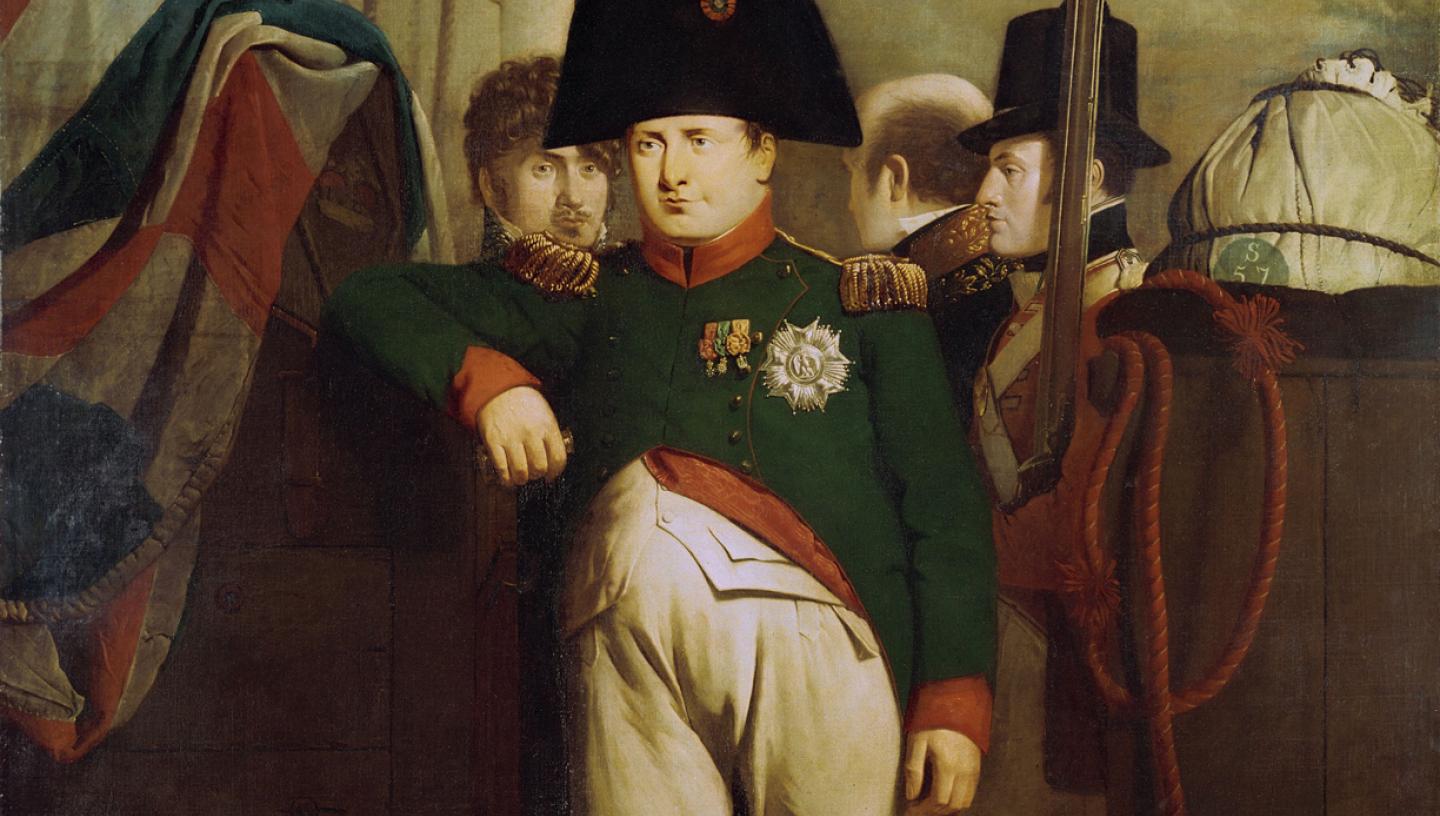The French Revolution, a pivotal period from 1789 to 1799, marked a radical shift in France's political, social, and cultural landscape. Fueled by widespread discontent among the populace, it sought to dismantle centuries of absolute monarchy and feudal privileges. Central to understanding this transformative era are its key leaders, whose ideologies and actions shaped the course of the revolution. In this blog post, we will explore the background and causes of the French Revolution, highlight its most significant figures including Maximilien Robespierre, and examine the lasting impact and legacy that this monumental uprising had on France and the world. Join us as we delve into the intricate tapestry of leadership that defined one of history's most crucial revolutions.
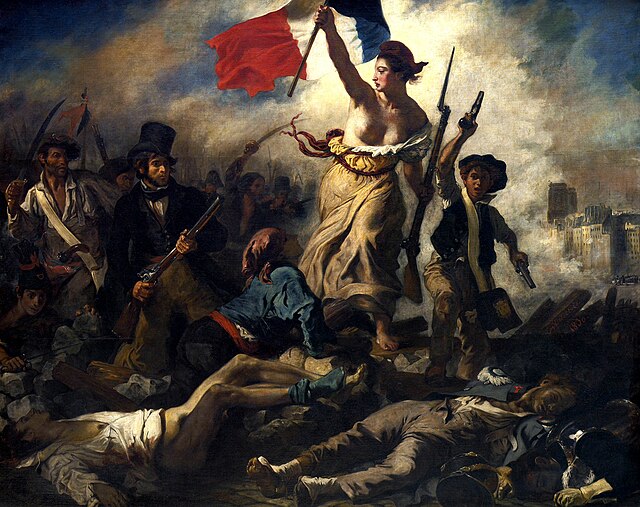
Background of the French Revolution
The French Revolution, which began in 1789 and lasted until the late 1790s, was a period marked by a radical transformation not just of French society but also of the concepts of power, governance, and individual rights, all of which fundamentally challenged the established norms of the monarchy and aristocracy that had ruled France for centuries, leading to widespread social upheaval and introducing a series of philosophical ideas that navigated the intersection of liberty, equality, and fraternity, shaping not only the future of France but also serving as an influential model for revolutions across the globe in the years to come. As the king’s financial mismanagement, coupled with rising social inequality, persistent food shortages, and the spread of Enlightenment ideas among the populace, created a perfect storm of discontent, the French people began to realize that their plight was not just a personal struggle but a collective fight against an oppressive regime, thus setting the stage for a powerful revolution that would eventually lead to the downfall of the Bourbon monarchy.
Economic and Social Context
The economic situation in France during the late 18th century was dire, characterized by heavy taxation imposed on the Third Estate, which consisted largely of commoners, who bore the brunt of the financial burden while the privileged First and Second Estates, comprised of clergy and nobility respectively, enjoyed significant exemptions. With the costs of wars, including the American Revolution, and the extravagant spending of King Louis XVI leading to national debt spiraling out of control, the citizens faced increasing poverty and hunger, pushing them to demand accountability and reform. This discontent was fueled by the ideas of the Enlightenment, with philosophers like Rousseau and Voltaire advocating for the rights of individuals and critiquing the very foundations of monarchy and inherited privilege.
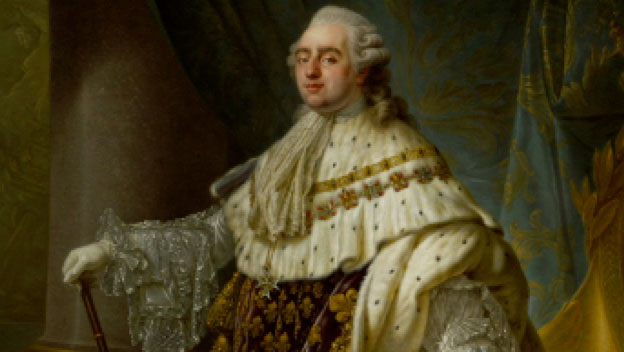
The Estates-General and the Rise of the National Assembly
The convening of the Estates-General in May 1789 marked the beginning of a pivotal turning point in French history, as it was the first time since 1614 that this representative assembly had been called to address the fiscal crisis, but the expectations quickly shifted, revealing the deep divisions and frustrations within the Third Estate. When the Third Estate, feeling sidelined and unrepresented, proclaimed itself the National Assembly, declaring their intention to draft a new constitution, they positioned themselves not merely as advisors to the king but as the true representatives of the French populace, thus igniting tensions between the monarchy and the people. As storming the Bastille became a symbol of the revolution, the events that unfolded in the summer of 1789 encapsulated the chaotic and passionate spirit of an uprising fueled by a longing for justice, equality, and an end to tyranny, forever altering the course of France's history.
- Discontent arising from economic hardship and social injustice.
- Influence of Enlightenment ideas on the common populace.
- Formation of the National Assembly as a representative force.
Causes of the French Revolution
The French Revolution, a monumental event that forever altered the course of history, was a result of a multitude of interwoven factors that collectively created an environment ripe for radical change, wherein the discontent of the lower classes, dissatisfaction with the monarchy, and the influence of Enlightenment ideas coalesced into a fervent desire for revolution and reform. As the populace grappled with increasing economic challenges exacerbated by fiscal mismanagement and a burdensome tax system that disproportionately affected the Third Estate, it became increasingly clear that the existing socio-political structure was unsustainable, prompting widespread calls for a reassessment of governance and society. Moreover, the profound impact of Enlightenment philosophy, which championed principles like liberty, equality, and fraternity, fostered a growing awareness among the citizenry regarding their inherent rights and their capacity to instigate change, thus constructing the ideological foundation that would fuel revolutionary fervor.
- The financial crisis, largely stemming from extravagant spending by the monarchy, particularly during wars, left the government deeply in debt.
- The Estates-General, with its unequal representation, highlighted the lack of voice for the Third Estate, who made up the vast majority of the population.
- Food shortages, partly due to poor harvests and rising bread prices, exacerbated the plight of the common people, leading to widespread unrest.
- Enlightenment thinkers, including Voltaire and Rousseau, inspired new political ideals that questioned traditional authority and social hierarchy.
- The influence of the American Revolution provided a tangible example of a successful revolt against tyranny, encouraging the French populace to envision similar triumphs.
In addition to these underlying issues, a pervasive sense of injustice drove the people to seek change, as the rigid class system in France served to reinforce privilege and wealth among the aristocracy while relegating the common folk to a state of perpetual struggle and poverty. In the face of such overwhelming inequalities, the Third Estate, consisting of peasants, city workers, and the burgeoning middle class, began to organize and deliberate on the ways to challenge the existing regime, ultimately leading to the formation of the National Assembly, which represented a significant pivot point in the escalation towards revolution. Furthermore, King Louis XVI’s inability to effectively address the fiscal turmoil and social discord exemplified the disconnect between the monarchy and the realities facing the electorate, ultimately culminating in a collective awakening that would ignite the flames of revolution across the nation.
| Factor | Description |
|---|---|
| Financial Crisis | Massive debt incurred from wars and lavish spending, leading to higher taxes on the Third Estate. |
| Social Inequality | Unfair systems that favored the first two estates and disenfranchised the Third Estate. |
| Enlightenment Ideas | Philosophical shifts that encouraged critical thinking about governance and personal rights. |
| Food Shortages | Poverty and hunger due to agricultural failure, resulting in increased anger among the populace. |
| Influence of the American Revolution | An inspiring success for liberty that illustrated the potential for revolutionary change. |
Ultimately, the confluence of severe economic pressure, social discontent, philosophical enlightenment, and a desperate cry for food security sparked a chain reaction that propelled France into a revolutionary frenzy, where the old order was challenged and the ideals of liberty, equality, and fraternity were raised high as the rallying cries for a new beginning. As these circumstances unfolded, it became evident that the French Revolution was not merely an isolated event but rather a manifestation of deep-rooted issues that had simmered for too long, ready to burst forth into a new era defined by radical transformation and a relentless pursuit of justice. In retrospect, understanding the causes of the French Revolution serves not only as a reminder of the fragility of social order but also highlights the power of collective action in the face of long-standing inequities, revealing the profound impact of a united populace in driving historical change.
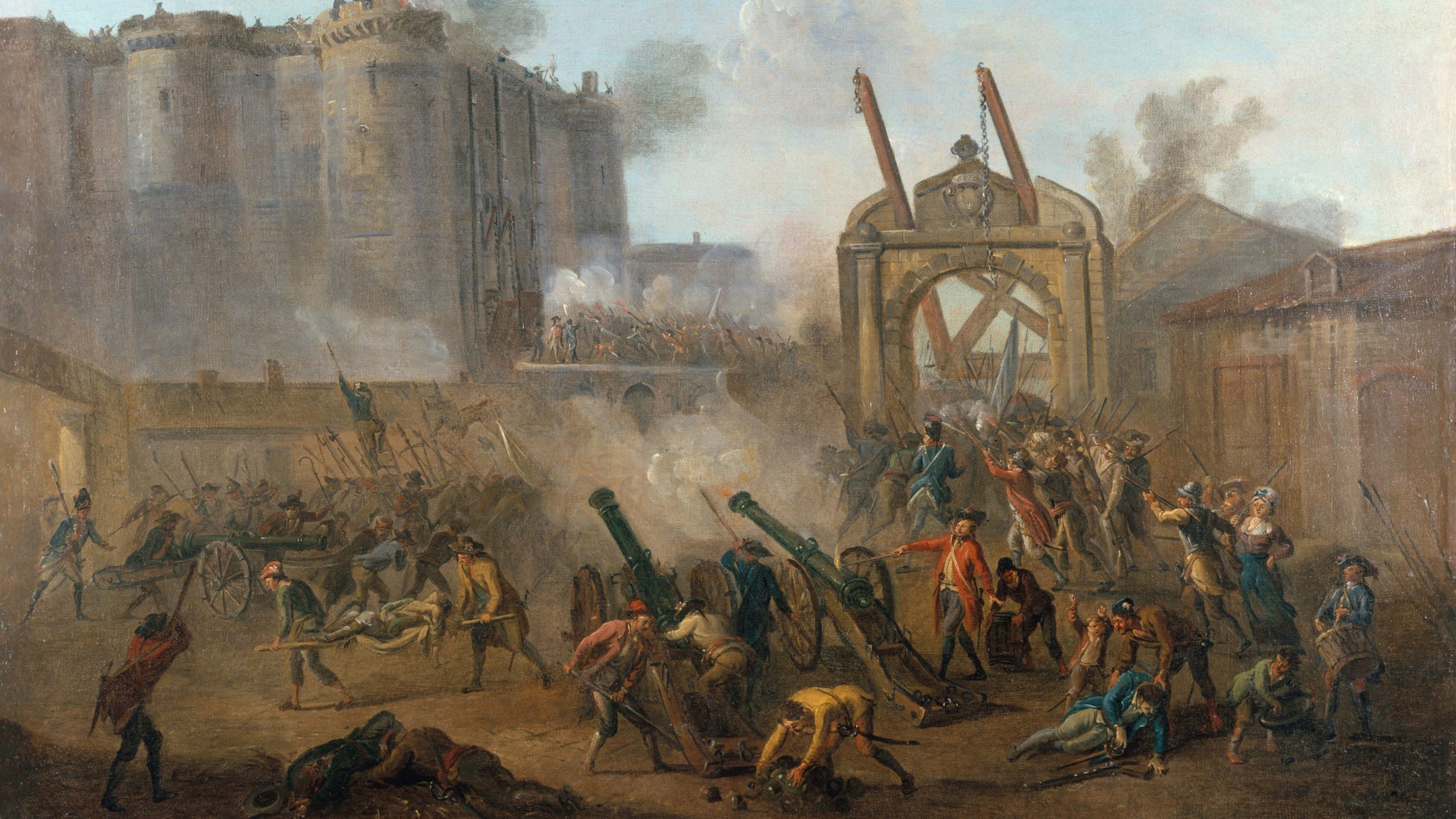
Key Leaders of the French Revolution
The French Revolution, a period of profound social and political upheaval that fundamentally changed the course of French history, was not merely a spontaneous eruption of popular discontent but rather a carefully orchestrated series of actions and movements led by significant figures whose visions and ambitions shaped the trajectory of the revolution itself. Among the towering personalities that emerged during this transformative era were Maximilien Robespierre, Georges Danton, and Jean-Paul Marat, each of whom played vital roles in advocating for the principles of liberty, equality, and fraternity, while often navigating the tumultuous waters of political alliances, ideological conflicts, and personal rivalries that characterized this intense period of revolutionary fervor.
Maximilien Robespierre
Robespierre, often regarded as one of the most prominent leaders of the revolution, emerged from his initial role as a lawyer and politician to become a central figure in the Committee of Public Safety, where his unwavering commitment to revolutionary ideals soon gained him the nickname The Incorruptible. His fierce dedication to achieving the goals of the revolution led him to advocate for the execution of King Louis XVI and to push for radical measures aimed at eradicating perceived enemies of the revolution, resulting in a reign of terror that ultimately contributed to his downfall when he himself was executed, illustrating the volatile nature of revolutionary power dynamics.
Georges Danton
Danton, known for his charismatic oratory and formidable presence, was another key leader whose influence was deeply felt both in the early stages of the revolution and during its more radical phases, as he championed the rights of the sans-culottes and urged the revolutionaries to take decisive action against foreign threats to the newly formed French Republic. His pragmatic approach to governance initially won him favor among revolutionaries and the public alike, but as the revolution progressed, Danton found himself at odds with Robespierre and the more radical factions; ultimately, his calls for moderation and conciliation during the height of the revolutionary fervor led to his arrest and execution, illustrating the inherent conflicts within revolutionary leadership.
- Maximilien Robespierre
- Georges Danton
- Jean-Paul Marat
Overall, the key leaders of the French Revolution not only embodied the hopes and aspirations of a society yearning for change but also held the power to shape the course of events, for better or worse, in a nation that would emerge transformed in ways both.
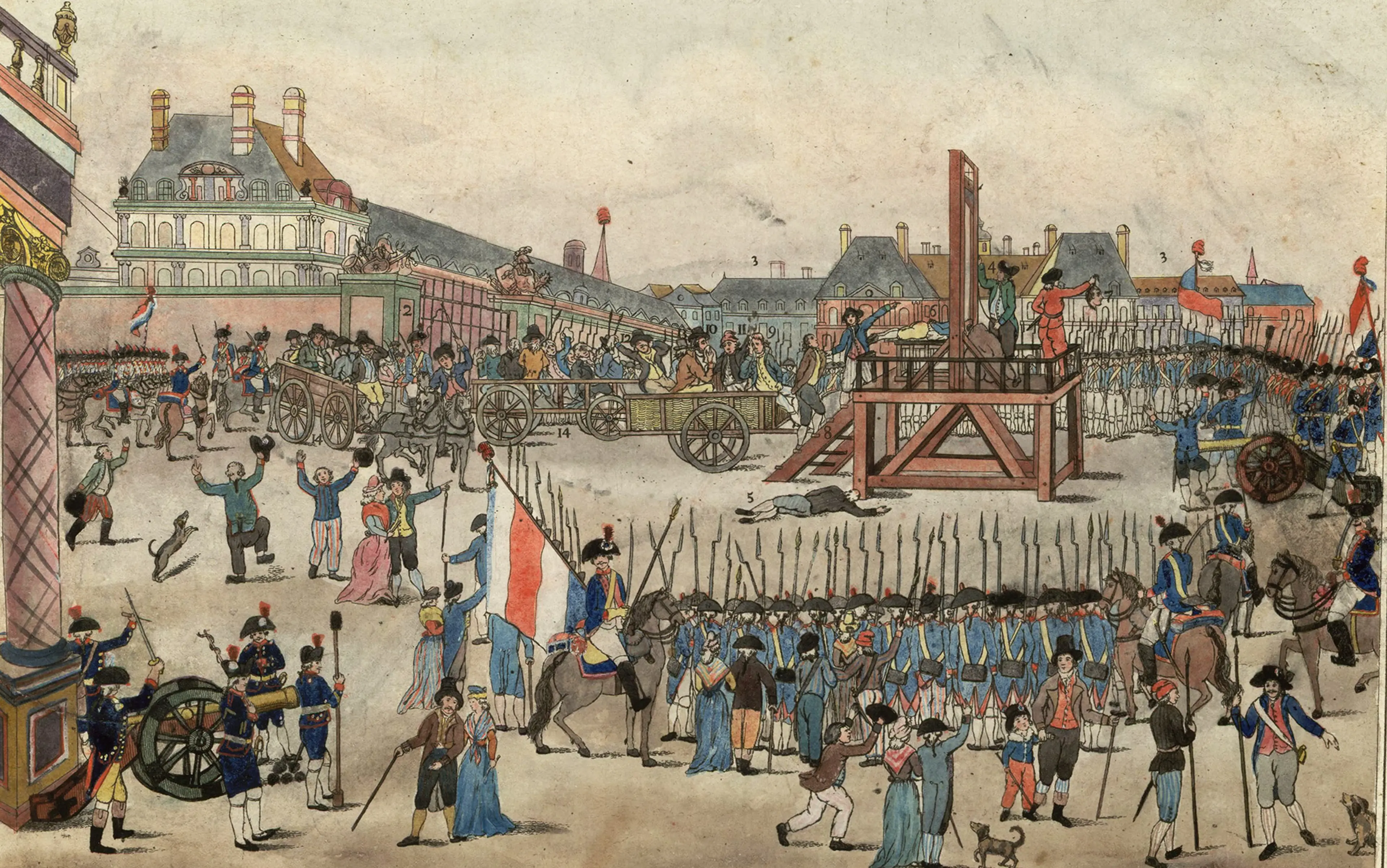
Role of Robespierre in the French Revolution
Maximilien Robespierre emerged as one of the most significant figures during the turbulent years of the French Revolution, a period marked by radical social and political upheaval that fundamentally altered the course of French history and fundamentally challenged the established order, ultimately leading to the rise of new revolutionary ideals and a call for equality, liberty, and fraternity among the populace. As a prominent member of the Committee of Public Safety, Robespierre was instrumental in orchestrating the revolutionary government’s efforts to protect the revolution from perceived enemies both within and outside France, advocating for policies that he believed were essential for the preservation and triumph of the revolutionary cause, which often placed him in direct conflict with various factions that opposed his vision of a virtuous republic. Robespierre's leadership is perhaps most famously associated with the Reign of Terror, a campaign characterized by the mass arrests and executions of individuals deemed to be counter-revolutionaries or enemies of the state, which served as the revolutionary government's reaction to widespread internal dissent and external threats. His belief in the necessity of these drastic measures was founded on his assertion that the revolutionary state was justified in taking extreme actions to protect itself and to bring about a republic where justice was served, even if that meant resorting to violence and terror against fellow citizens who were seen as obstacles to the revolutionary agenda.
- Robespierre was a key architect of the Reign of Terror, which lasted from September 1793 to July 1794.
- He advocated for the use of revolutionary tribunals to swiftly eliminate perceived threats.
- Robespierre's policies led to the execution of thousands, including notable political figures.
The formation of the revolutionary government under Robespierre directly contributed to a climate of fear across France, as citizens became increasingly wary of their neighbors and the political loyalties they might harbor, which fostered a sense of paranoia that permeated society and led to the execution of not only politicians but innocent civilians caught in the crossfire of revolutionary zeal. His relentless pursuit of ideological purity and commitment to what he considered the “general will” positioned him as a central figure in radical Enlightenment thought, giving rise to the idea that the ends justified the means in the quest for a just society, a notion that would later be scrutinized and critiqued as it resulted in grave human cost.
| Key Events | Dates |
|---|---|
| Establishment of the Committee of Public Safety | April 1793 |
| Start of the Reign of Terror | September 1793 |
| Execution of Louis XVI | January 1793 |
| Fall of Robespierre | July 28, 1794 |
Ultimately, the dramatic arc of Robespierre's influence on the French Revolution culminated in his own downfall, as the very ideology that propelled him to prominence also served to alienate potential allies and create an atmosphere of increasing dissatisfaction, culminating in the Thermidorian Reaction, which led to his arrest and execution, illustrating the precarious nature of revolutionary politics. The legacy of Robespierre remains a subject of intense debate among historians, as his role epitomizes the complexities and contradictions inherent in the revolutionary struggle, demonstrating both the potential for transformative change that revolutions can offer and the dangers of unchecked power and moral absolutism, which can lead to the very tyranny that revolutionaries sought to overthrow. In reflecting on Robespierre's actions and beliefs during the revolution, it becomes clear that his life and career serve as a cautionary tale about the balance between revolutionary fervor and the ethical considerations of governance, urging future generations to consider the consequences of their actions in the pursuit of a greater societal good, raising questions that resonate through history to the present day, reminding us that the pursuit of revolution must always be tempered by a commitment to justice and humanity.
Impact of the French Revolution on France
The French Revolution, which began in 1789 and lasted until the late 1790s, had an unparalleled impact on France, as not only did it dramatically alter the political landscape of the country, but it also instigated profound social, cultural, and economic transformations that would reverberate through the ages, shaping the course of French history and influencing revolutionary movements worldwide. The emergence of principles such as liberty, equality, and fraternity fundamentally challenged the established order of monarchy and aristocracy, fostering a spirit of nationalism that propelled the citizens of France to question traditional forms of governance and societal hierarchies that had once seemed unassailable and eternal. This seismic shift led to the abolition of feudal privileges, culminating in the declaration of the Rights of Man and of the Citizen, which laid the groundwork for modern democratic ideals, illustrating how the power of the people could indeed reshape their own destiny. One of the most significant areas affected by the revolution was the political structure of France, as the monarchy was dismantled in favor of a republic, ultimately resulting in the establishment of various forms of government, including the National Assembly, the Directory, and the eventual rise of Napoleon Bonaparte, whose rule would both consolidate and expand upon the changes initiated during the revolutionary period. Additionally, the revolution not only fostered the emergence of new political ideologies, such as socialism and liberalism, but also underscored the role of the citizen as a participant in governance, as the idea of popular sovereignty took root, ushering in a new era where the will of the people could no longer be ignored by those in power. As a result, the power dynamics within French society underwent a radical transformation, leading to increased participation of the middle and lower classes in both the political sphere and civic life, thus reshaping the fabric of French society itself. The impact of the French Revolution can also be summarized in several key aspects, which include:
- The abolition of the monarchy and the establishment of a republic.
- The implementation of revolutionary ideals such as liberty, equality, and fraternity.
- The emergence of nationalistic sentiments that promoted the idea of a unified French identity.
- The proliferation of new political ideologies, including liberalism and socialism.
- The establishment of the Rights of Man, advocating for individual freedoms and civil rights.
- The inspiration for future revolutionary movements across the globe, especially in the Americas and Europe.
In conjunction with these political changes, the revolution brought about significant social changes, as the old regime's feudal structures were dismantled, abolishing the privileges of the nobility and clergy, which allowed for greater social mobility and a focus on meritocracy, as the newly empowered bourgeoisie and working classes sought to redefine their roles within the evolving societal framework. Additionally, the revolution catalyzed various cultural transformations, as the reign of terror followed by the rise of romanticism fostered an appreciation for individual expression and nationalistic pride, which led to a flourishing of art, literature, and a renewed sense of cultural identity among the French people. It is essential to recognize that while the French Revolution ignited hopes for a more just and equitable society, it was also marked by periods of violence and instability, thus illustrating the complex and often tumultuous nature of revolutionary change, and how such upheaval can pave the way for both progress and turmoil in pursuit of a more ideal society, further entrenching the idea that revolutions are never straightforward but instead multifaceted events with enduring consequences.
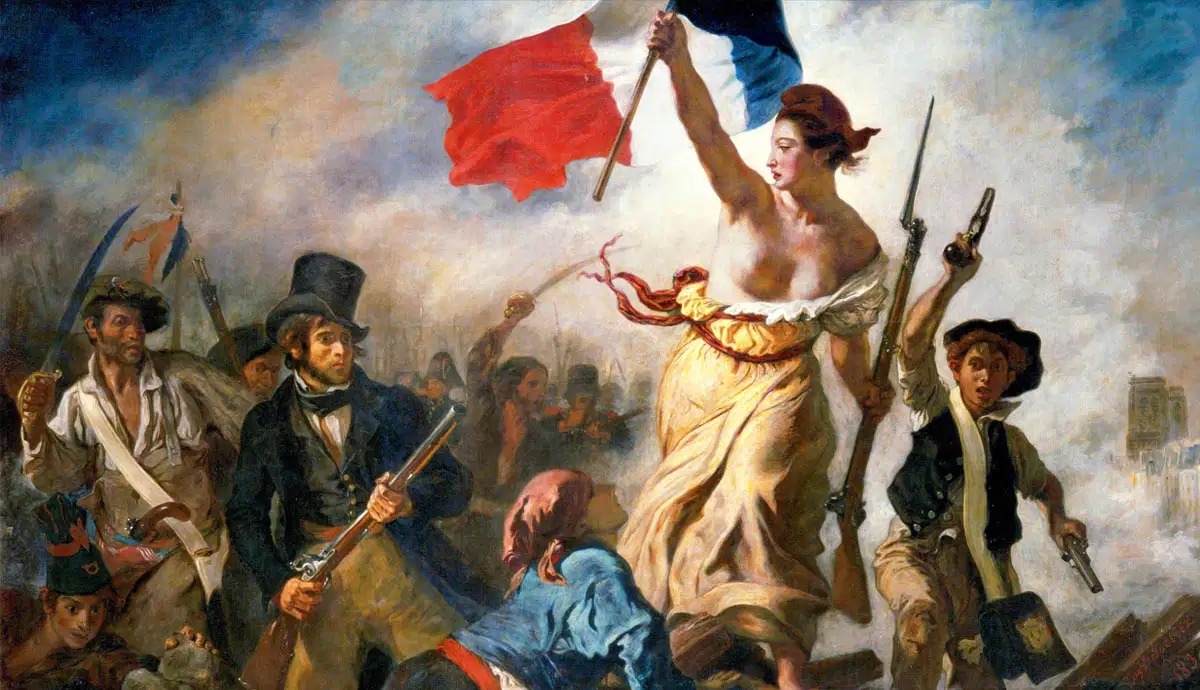
Legacy of the French Revolution
The legacy of the French Revolution is profoundly significant and multifaceted, having not only reshaped the political landscape of France but also influencing numerous democratic movements that emerged worldwide in the centuries that followed, thereby marking a pivotal turning point in the collective human quest for liberty, equality, and fraternity. The ideals espoused during this tumultuous period, particularly those articulated in seminal documents such as the Declaration of the Rights of Man and of the Citizen, have continued to resonate across different cultures and political systems, advocating for human rights, social justice, and the notion that governance should stem from the consent of the governed, which stands in stark contrast to the absolutist regimes that were prevalent prior to the revolution. As a testament to its enduring significance, the revolution laid foundational principles that inspired various liberation movements, providing both a framework and a rallying cry for those seeking to challenge oppression and implement reform.
| Key Elements of Revolutionary Legacy | Impact |
|---|---|
| Liberty | Promotion of individual freedom and autonomy |
| Equality | Challenge against social hierarchies and class privileges |
| Fraternity | Sense of national identity and collective responsibility |
The revolution also prompted a shift away from feudal structures and the old regime, leading to the eventual establishment of democratic ideals that continue to shape governance in many nations around the globe, illustrating that even the most entrenched traditions can be reformed when the populace actively seeks change. Furthermore, the revolution set off a chain reaction within Europe, inspiring uprisings and reforms in countries like Italy, Germany, and Hungary, where the principles of the French Revolution planted seeds of discontent against tyrannical rule and spurred movements toward self-determination and national sovereignty. In analyzing the revolutionary legacy, it is crucial to recognize not only the resulting political transformations but also the profound social changes that accompanied them, as concepts such as secularism, citizenship, and national identity emerged as cornerstones of modern societies, redefining the very fabric of collective human existence. Moreover, while the French Revolution succeeded in dismantling feudalism and established a republic, it also demonstrated the complexities and contradictions inherent in revolutionary movements, revealing that the fight for equality and justice can sometimes lead to violence and repression, as evidenced by the Reign of Terror, which served as a stark reminder that the quest for ideological purity can result in moral dilemmas and profound human suffering. Thus, in contemporary discussions about revolution, it becomes imperative to acknowledge not just the noble aspirations that drive such movements but also the myriad consequences that can follow, which can shape former ideals into instruments of oppression if left unchecked. In sum, the legacy of the French Revolution is a profound reminder that revolutions, while aimed at fostering progress and democracy, necessitate constant vigilance to ensure that they do not devolve into the very tyranny they sought to overthrow.
- Inspiration for modern democracies
- Promotion of human rights
- Challenge to social hierarchies
- Framework for national identity
- Awareness of revolutionary complexities
Frequently Asked Questions
What were the main causes of the French Revolution?
The main causes of the French Revolution included social inequality, financial trouble faced by the monarchy, Enlightenment ideas promoting democracy and equality, and resentment against feudal privileges.
Who were the key figures that led the French Revolution?
Key figures included Maximilien Robespierre, Georges Danton, and Jean-Paul Marat, along with other revolutionary leaders who advocated for change.
What role did Louis XVI play in the French Revolution?
Louis XVI's inability to solve the financial crisis and his subsequent attempts to suppress the revolution ultimately led to his downfall and execution by guillotine.
How did the French Revolution affect the world?
The French Revolution inspired numerous movements for democracy and equality around the world, influencing revolutions and reforms in countries from Europe to the Americas.
What was the Reign of Terror?
The Reign of Terror was a period during the French Revolution (1793-1794) characterized by extreme political purges, mass executions of perceived enemies, and the dominance of radical leaders like Robespierre.
What was the significance of the Storming of the Bastille?
The Storming of the Bastille on July 14, 1789, is considered a symbolic act of revolution, representing the uprising against tyranny and the beginning of the revolutionary movement in France.
What was the outcome of the French Revolution?
The French Revolution resulted in the end of absolute monarchy in France, the establishment of a republic, significant social and political changes, and ultimately paved the way for the rise of Napoleon Bonaparte.


